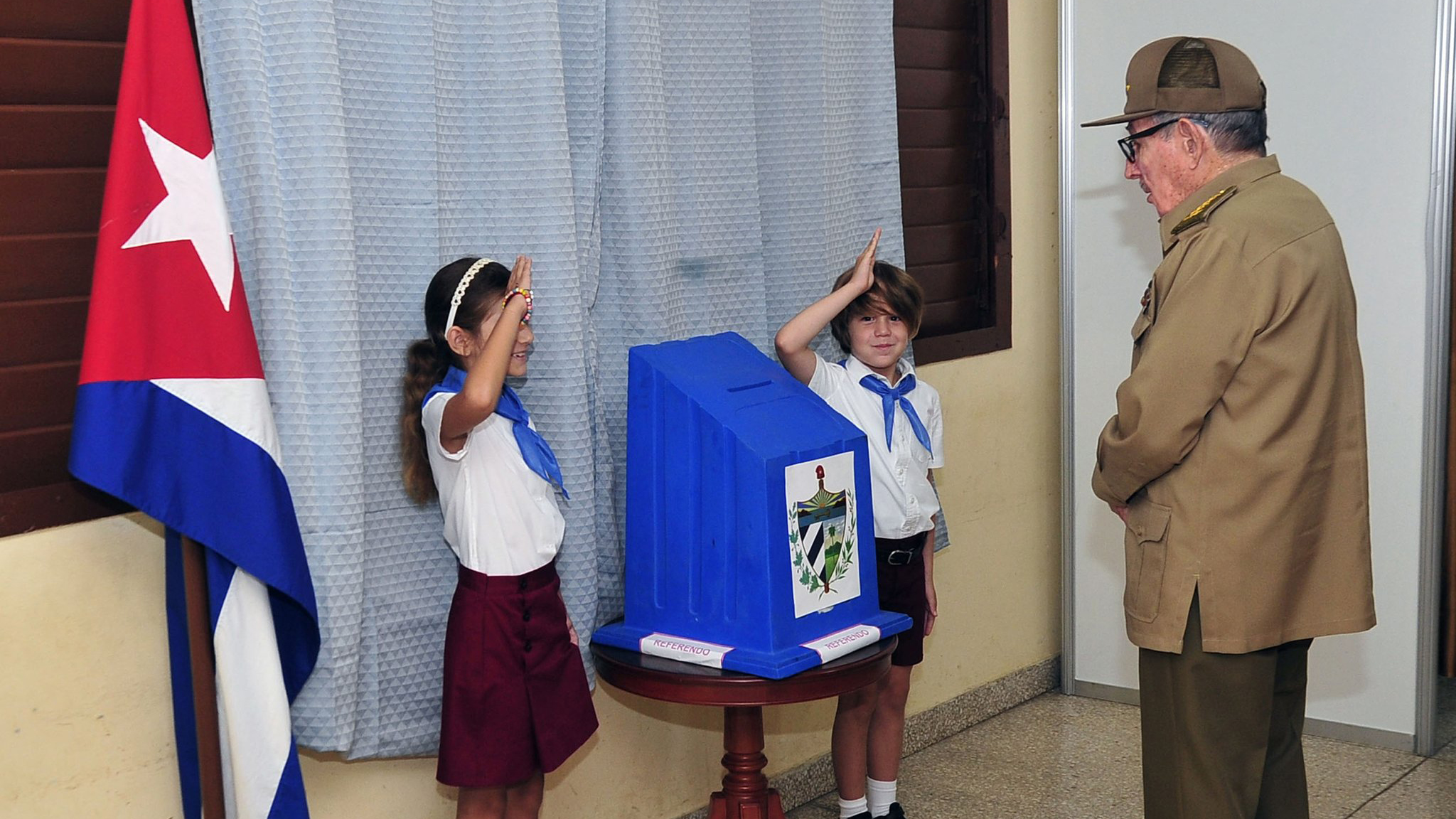The people of Cuba approved a new progressive Family Code with an overwhelming majority in a historic national referendum on September 25. On the morning of September 26, Alina Balseiro, president of the National Electoral Council (CEN), reported that with 94.25% of the votes counted, Cubans decided by a resounding 66.87% of the votes to ratify the implementation of a new Family Code, written in consultation with the general public.
74.01%, or 6,251,786 of the total 8,447,467 eligible voters living in and outside Cuba took part in the unprecedented plebiscite. Of the 5,892,705 or 94.25% of the votes counted, 3,936,790 or 66.87% of the votes were for the option “YES”. Meanwhile, option “NO” obtained 1,950,090 or 33.13% of the votes.
The new Family Code has been described by experts as the most inclusive, progressive and revolutionary code in the world. This new code legalizes equal marriage and equal adoption rights regardless of sexual orientation, recognizes the rights of surrogate mothers, recognizes women’s work in the household, and recognizes the role of grandparents in the family, among many more progressive victories.
National celebration
Following the announcement of the preliminary results, thousands of Cubans took to social media networks to celebrate the ratification of the code. “Love is already a law,” “love, respect and unity won,” “Cubans voted with whole heart in favor of unity, socialism and revolution,” and similar resonant phrases flooded WhatsApp, Twitter, Instagram and Facebook.
President Miguel Díaz-Canel, celebrating the results in favor of the option “YES”, tweeted, “Approving the new Family Code is doing justice. It is paying off a debt with several generations of Cuban men and women, whose family projects have been waiting for this Law for years. From today we will be a better nation.”
Foreign minister Bruno Rodríguez also welcomed the results. “Our people opted for a revolutionary, uplifting law that drives us to achieve social justice for which we work every day. Today we are a better country, with more rights,” tweeted Rodríguez.
Esteban Lazo, president of the National Assembly of People’s Power, stated, “Love, affection, peace, inclusion and social justice triumphed, it’s “YES” for Cuban families.”
Justice Minister Oscar Silvera Martínez also celebrated the results. “Our people, the sovereign protagonist of the referendum, approved the Family Code. From the Ministry of Justice, we congratulate all those who participated in the referendum on a Code of love, respect and equality. We are already working on its implementation and we will do it right,” he tweeted.
The executive secretary of the Bolivarian Alliance for the Peoples of Our America – People’s Trade Treaty (ALBA-TCP), Sacha Llorenti, also congratulated the Cuban government and its people on the results of the historic referendum.
“We extend our congratulations to President Miguel Díaz-Canel, the government and people of Cuba on successfully concluding the popular referendum on the Family Code. The Revolutionary people have sovereignly built one of the most advanced Codes in the world,” tweeted Llorenti.
Ya es Ley!!!! Cuba tiene #CodigoDeLasFamilias
#Ganamos #YoVoteSI.❤🇨🇺❤🇨🇺
👨👩👧🧑🤝🧑👩👧👨👩👧👦👪👨👩👧👧👨👩👦👦👩👧👧👩👧👦👭👶🧓👵👩🦳👧👦@OscarCubaMinjus@RosyCubaMINJUS @CubaMinjus @SindicatoMinjus pic.twitter.com/OMk9cJFA4n— UJC-Minjusoficial (@UJC_Minjus) September 26, 2022
What makes Cuba’s new Family Code the most progressive in the world?
The new code enacts sweeping advances in the rights of women, LGBTQ people, children, elderly people, and people with disabilities.
The new code guarantees the right of all people to form a family without discrimination, legalizing same sex marriage and allowing same sex couples to adopt children. Under the new code, parental rights will be shared among extended and non-traditional family structures that could include grandparents, step parents and surrogate mothers. The code also adds novelties such as prenuptial agreements and assisted reproduction.
The Code promotes equal distribution of domestic responsibilities amongst men and women and extends labor rights to those who care full-time for children, the elderly, or people with disabilities. The code establishes the right to a family life free from violence, one that values love, affection, solidarity and responsibility. It codifies domestic violence penalties, and promotes comprehensive policies to address gender-based violence.
The Code also outlaws child marriage and corporal punishment, stating that parents will have “responsibility” instead of “custody” of children, and will be required to be “respectful of the dignity and physical and mental integrity of children and adolescents.” It also asserts that parents should grant maturing offspring more say over their lives.
The new code also expands the rights of the elderly and people with disabilities. It recognizes the role of grandfathers and grandmothers in the transmission of values, culture, traditions and care.
The new Cuban Families Code is an incredible win for children, the elderly, LGBTQ+ people, women, and families. This is what participatory democracy looks like! https://t.co/ZxboJsvWAP
— CODEPINK (@codepink) September 26, 2022





